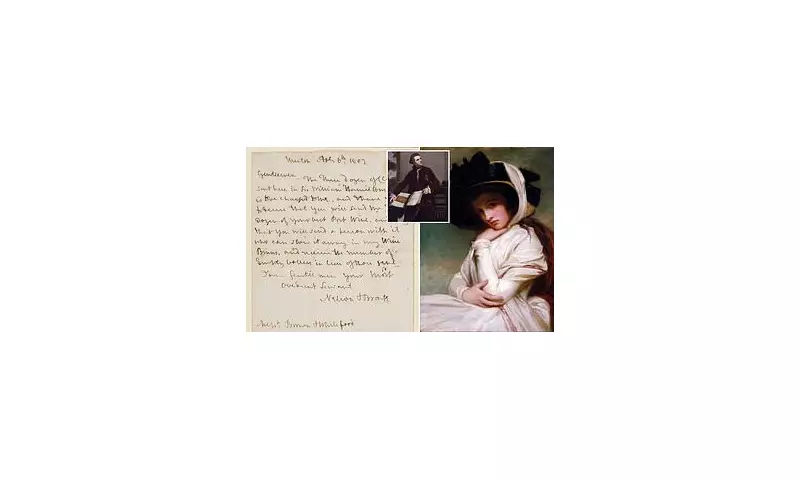
In a stunning revelation that peels back the layers of British naval history, newly uncovered documents expose Admiral Lord Nelson's intimate involvement in settling personal debts with his mistress's husband. The legendary Trafalgar hero, celebrated for his military brilliance, maintained a complex personal life that now comes to light through historical correspondence.
The Scandalous Payment
The extraordinary letter, dating from the height of Nelson's fame, details his direct order to pay for three dozen bottles of premium Claret wine. What makes this transaction particularly remarkable is the recipient: Sir William Hamilton, the husband of Nelson's famed mistress, Emma Hamilton.
This financial arrangement reveals the intricate and uncomfortable dynamics within this famous Georgian love triangle. While Nelson commanded Britain's fleets against Napoleon, he simultaneously navigated the treacherous waters of this domestic situation, ensuring his lover's husband remained financially compensated.
A Window into Regency England
The discovered correspondence provides fascinating insight into the social mores and financial practices of early 19th-century Britain. Despite his global fame and military responsibilities, Nelson involved himself directly in settling what appears to be a household expense, suggesting the depth of his entanglement in the Hamilton household affairs.
Historical experts note that such arrangements, while scandalous by modern standards, were not entirely uncommon in Regency-era aristocracy, where marriages of convenience often coexisted with extramarital relationships.
The Nelson-Hamilton Affair
The relationship between Horatio Nelson and Emma Hamilton remains one of history's most documented romances. Emma, wife of the British envoy to Naples, captured Nelson's heart during his Mediterranean service. Their passionate affair produced a child and continued until Nelson's death at Trafalgar in 1805.
This wine bill payment adds another layer to our understanding of how Nelson managed his public duties alongside his private indiscretions. The fact that he personally authorised payment to his lover's husband demonstrates both the practicality and the awkwardness of their arrangement.
Historical Significance
Beyond the sensational aspects, the document offers valuable historical context about Nelson's character and the social structures of his time. It shows a national hero engaged in mundane financial transactions while simultaneously planning military campaigns that would shape European history.
The letter's preservation and recent discovery underscore how much remains to be learned about even the most studied figures from Britain's past, reminding us that historical heroes were complex individuals navigating both public expectations and private desires.





